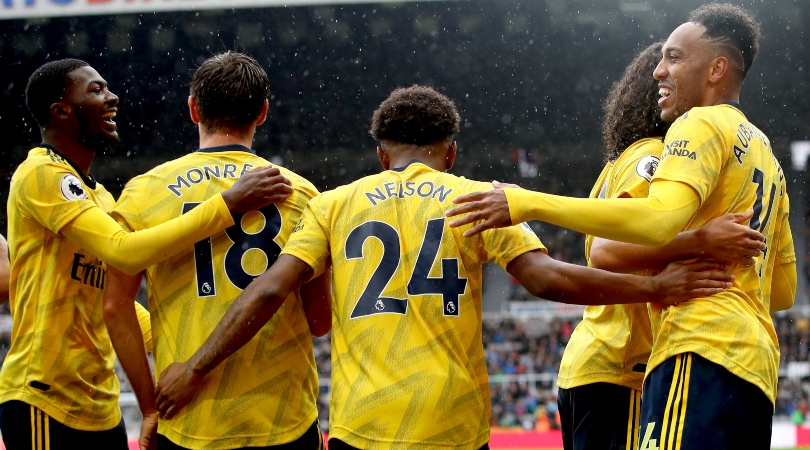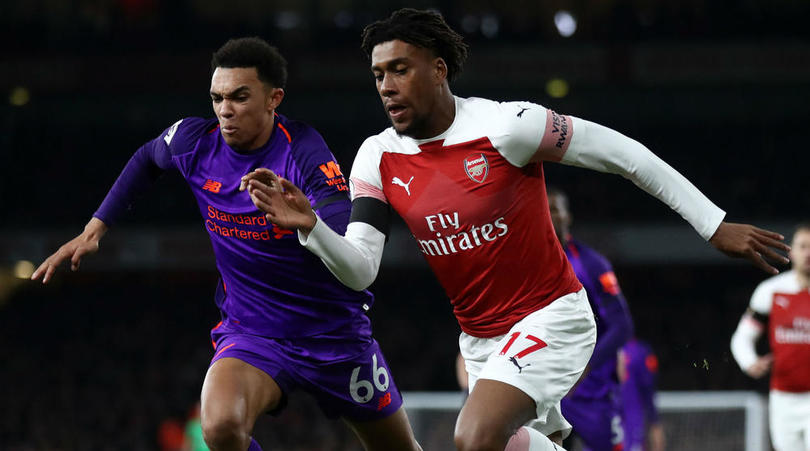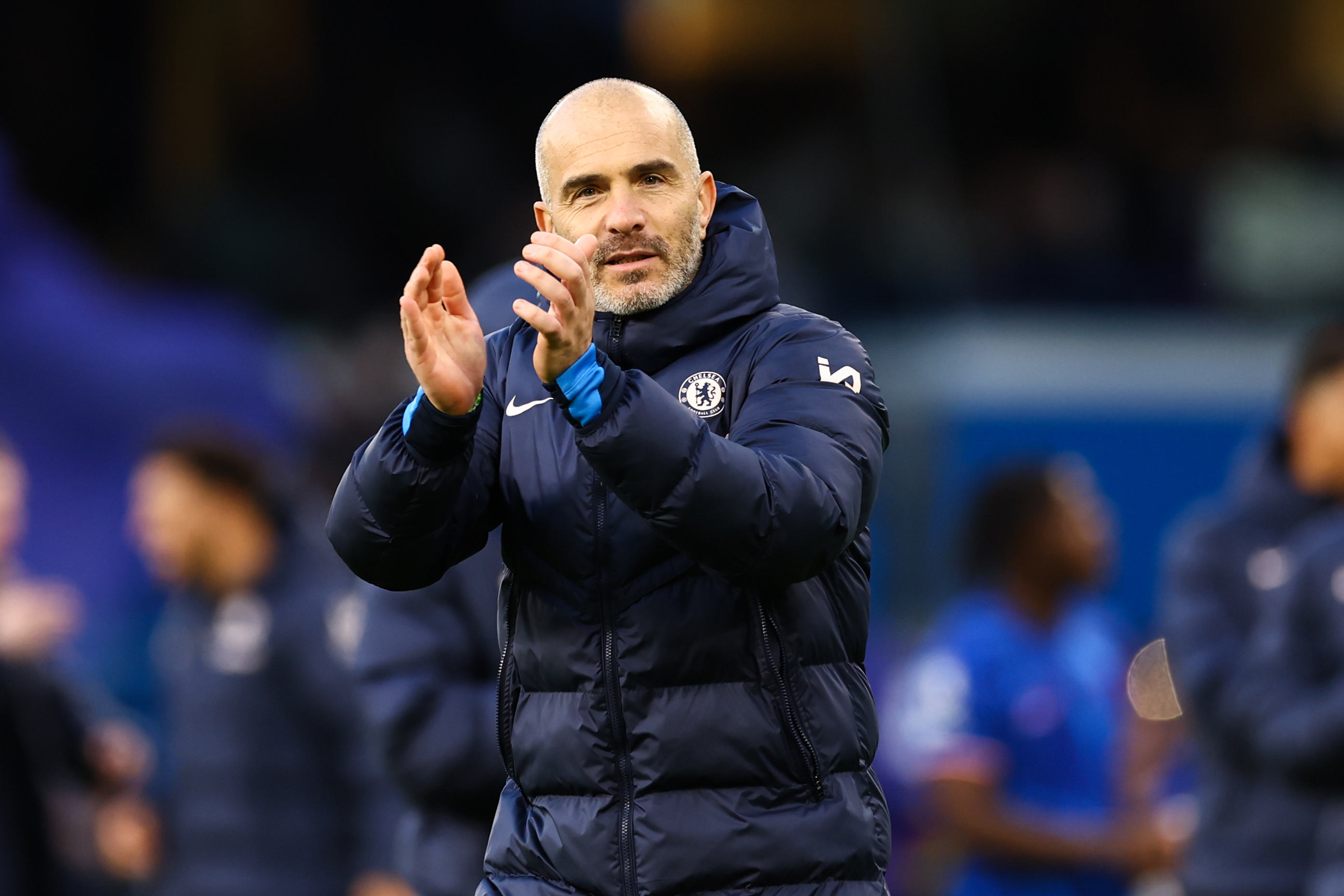How Johan Cruyff’s legacy could form the model for the new top-heavy Arsenal
Setting up defensively won’t offset the Gunners’ weakness at the back. As dangerous as it sounds, Unai Emery must set his side up to attack

In the summer of 1988, Johan Cruyff assembled the Barcelona squad for a first tactical meeting since becoming their coach. On a blackboard he sketched out three defenders, four central midfielders, two wingers and a striker. The players were shocked.
“We looked at each other and said: ‘What the hell is this?!’” said Eusebio, a midfielder. “We couldn’t believe how many attackers were in the team and how few defenders.”
Six years later Barca had won four league titles on the spin. Every time he hit trouble, Cruyff had thrown on more strikers. In 1993/94 Barca had racked up 91 league goals and shipped 42.
One of the many who watched the team on TV might have been Unai Emery, who was playing in the youth academy of Real Sociedad. Football will never have another Johan Cruyff but, given what Emery has at his disposal at Arsenal these days, perhaps learning from the great Dutchman might not be such a bad idea.
Arsenal, after all, have one of the most imbalanced squads in the Premier League: one in which prolific strikers, coveted wingers and languid playmakers come at the expense of a stable back line. Even when Arsenal did buy two senior defenders in the summer, they did so on the last day of the transfer window, and particularly the signing of David Luiz had the impulsiveness of someone at the supermarket tossing a chocolate bar into the basket just before paying at the till.
Luiz, the gifted but error-prone Brazilian once used by Chelsea in midfield, might now play next to Sokratis, Shkodran Mustafi, Rob Holding or Calum Chambers; or Nacho Monreal, who is 33; or Ainsley Maitland-Niles, who is actually a winger; or Sead Kolasinac, one of the most adventurous left-backs in the league. The first-choice full-backs, Hector Bellerin and newcomer Kieran Tierney, are out injured for a month.
All of which might indicate that Arsenal could wobble as much defensively as they did last season, when they let in 51 league goals.
The best features, fun and footballing quizzes, straight to your inbox every week.
But that might not be an issue. Elsewhere, Emery has options most coaches would envy. He has the league’s most clinical partnership in Pierre-Emerick Aubameyang and Alexandre Lacazette, plus Mesut Ozil, who can be indefensibly bad but also inexplicably good. He has the £72m winger Nicolas Pepe, who hammered home 22 goals in Ligue 1 last season, and Dani Ceballos, the fleet-footed playmaker on loan from Real Madrid, who would walk into most sides in Europe.
Anyone can see where in the team the talent lies. So why not accentuate the good parts?
If good coaches extract the maximum from their squad, one of Emery’s tasks is surely to cram as many good players into the team as possible. He might use a 4-2-3-1 with Lucas Torreira and Ceballos patrolling midfield, Ozil weaving his magic just ahead, Pepe storming into the box from the right and the Auba-Laca duo taking turns to play up front.
Having drawn this on a blackboard, Emery could then demand that his full-backs attack relentlessly, that David Luiz step into midfield to play killer passes and that Ozil refrain from all defensive activity. The players might conclude that Emery is mad. But would he really be?
Arsenal have little to lose. The underlying stats suggest that even last season’s fifth place was a generous reward for their displays. Arsenal had more shots fired at their own goal than they manage to take themselves. Were it not for their efficiency up front, they would at the very least have slipped outside the top six.
On Sunday at Newcastle the Gunners won 1-0, but hardly improved: they mustered only eight shots. “It’s good to have a clean sheet,” Emery said. “But we want to be a team that are mostly offensive.”
Should Emery go all-out attack, some might call him naive. But what is more pragmatic than to emphasise your strengths? Outsiders in England have nearly won leagues before because they let their creative players wreak havoc.
The buccaneering Newcastle side of Kevin Keegan should have won the title in 1996, only for their collapse in spring to let Manchester United leap ahead. Liverpool went close in 2013/14 because Brendan Rodgers knew a rearguard involving Aly Cissokho and Simon Mignolet was unlikely to hold up. Liverpool shipped 50 league goals, but an untameable Luis Suarez and midfield-anchor Steven Gerrard made sure they struck 101.
Even Sir Alex Ferguson went gung-ho when he had to. A year before Rodgers’ side went close, a porous Manchester United side stormed to the title while conceding 43 goals – more than four other teams in the division.
Granted, none of these coaches were as extreme as Zdenek Zeman, the bohemian Czech who once said he prefers a 5-4 defeat to a 0-0 draw. But as Zeman once asked: “Is a team that win 1-0 more balanced than one with a 5-4 victory?”
If anything attacking football pays off more each year. The pitches are faster, the tempo is higher, referees give players more protection. Stricter handball rules favour teams who spend a lot of time in the opposition penalty box.
As risk-averse coaches such as Jose Mourinho and Rafa Benitez struggle to get top jobs, the big clubs are hiring tacticians who want to attack. All members of the Premier League top six play on the front foot. Abroad, Zinedine Zidane has Real Madrid treating neutrals to some of the most open games on the continent. Even Juventus, the bastion of Italian defending, have waved goodbye to the flexible Max Allegri and welcomed the more idealistic Maurizio Sarri.
Arsenal also have an adventurous coach in Emery, but he could attack far more. In some way the nature of the club’s recruitment almost obliges it. And should it fail, Emery can at least take solace in the way Cruyff defended his style. “I want my teams to play good football,” Cruyff said, “even if it is because I have to watch all the games, and I don’t want to get bored.”
While you're here, why not take advantage of our brilliant subscribers' offer? Get 5 issues of the world's greatest football magazine for £5 – the game's greatest stories and finest journalism direct to your door for less than a pint in London. Cheers!
NOW READ...
Premier League live stream 2019/20: how to watch every game from anywhere in the world
27 essential Fantasy Premier League tips from old winners and experts

